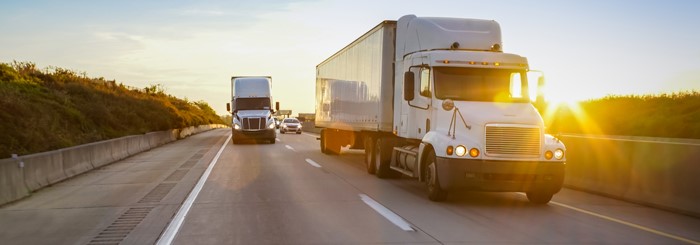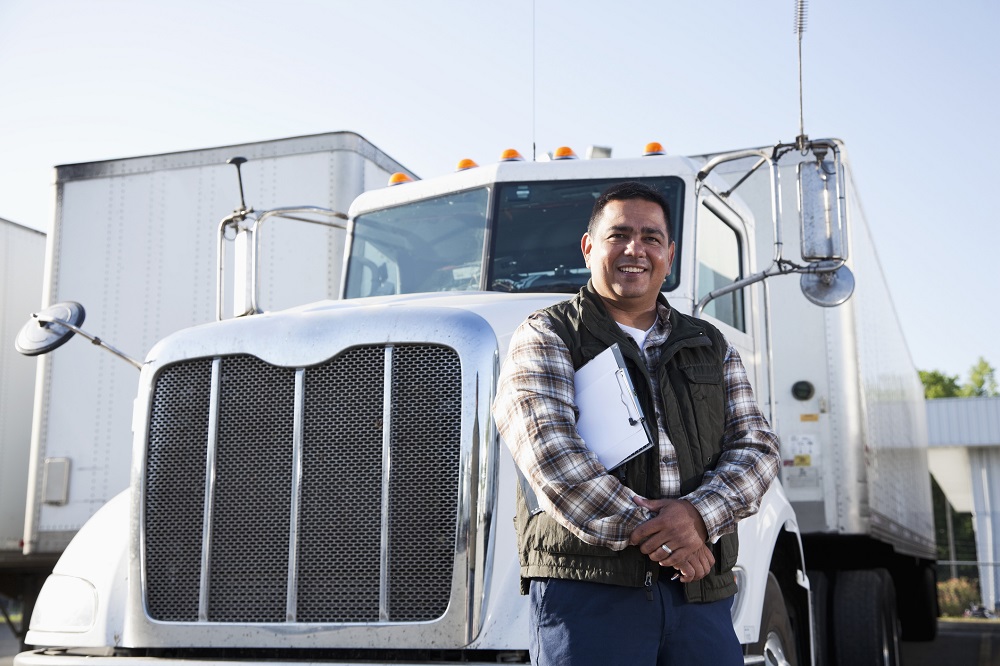
Trucking is the backbone of our economy, employing over 8.5 million Americans. Enacting pro-business, pro-growth tax policy will ensure that trucking companies of all sizes are better able to plan for the future, invest in their workforce and equipment, and ensure the safe and efficient movement of freight across the country.
The American Trucking Associations is grateful to House Republicans for their hard work on crafting the 2025 reconciliation package. Here are truckers’ seven top reasons why the House and Senate should advance this tax relief bill quickly:
1. Protecting the Legacy of Family-Built Businesses

Trucking is an industry composed primarily of small businesses. In fact, 96 percent of U.S. trucking companies operate 10 trucks or fewer. Families spend years, decades, or even generations to build their American Dream from the ground up.
When the time comes to pass the business on to younger family members, however, many of these family-run businesses are hit with massive tax bills. The Tax Cuts and Jobs Act that passed during President Trump’s first term temporarily doubled the estate tax exemption. Without action, this reprieve would sunset at the end of this year, tripling the number of returns subject to the punishing tax on inherited family businesses.
The 2025 reconciliation package would permanently extend the estate tax exemption and increase the threshold to account for inflation.
2. Providing Certainty for Business Planning

The trucking industry operates on thin margins. To guide investment decisions and ensure businesses can continue running smoothly, truckers need policy stability.
The 2025 reconciliation package will make business planning easier by permanently extending the individual income tax rates, standard deduction, and alternative minimum tax exemptions that were established in the Tax Cuts and Jobs Act. Additionally, the legislation will increase the 199A Passthrough Deduction from 20% to 23% and make it permanent. This will be a major benefit for trucking companies structured as pass-through businesses.
3. Ensuring Funding for Roads & Bridges is Fair

When it comes to paying for the maintenance and expansion of our road network, no one should get a free ride.
Truckers lead by example. We represent only four percent of the vehicles on our nation’s highways, yet we pay nearly half the tab into the federal Highway Trust Fund—all while moving over 70 percent of the domestic freight tonnage.
But electric cars are freeloaders. They currently do not contribute one cent to the HTF. The 2025 reconciliation package changes that by imposing a registration fee for the first time that is roughly equivalent to what a conventional car pays through the gas tax each year. Hybrids will also pay a small fee to ensure every car on the road is paying its fair share.
4. Promoting career opportunities

Quality education opens doors to rewarding careers. Trade schools are just as valuable as post-secondary schools in helping individuals climb the economic ladder and find personal fulfillment. Far too often, however, bureaucratic red tape bars the way for those seeking to obtain good jobs in the trucking industry.
Currently, 529 accounts and Pell Grants cannot be used for short-term educational programs like truck driver training schools. But students who choose this educational path deserve the same financial assistance as their peers.
The 2025 reconciliation bill rights this wrong by expanding the eligibility for Pell Grants and 529 accounts so that they can be used for postsecondary credentialing expenses.
These provisions will help more qualified drivers get behind the wheel and ensure our industry has the talent it needs to meet America’s freight demands in the years to come.
5. Encouraging Investment in New Equipment

Trucking is a capital-intensive business. Due to the high cost of replacing equipment, many trucking companies hold onto their tractor-trailers for as long as possible. Roughly half of the trucks on our roads today are over 15 years old.
Alleviating the financial burden on trucking companies purchasing new trucks would have immediate safety and environmental benefits. New trucks come equipped with capabilities designed to reduce or prevent crashes, such as automatic emergency braking and lane departure warning. Additionally, new trucks are much cleaner. Advances in truck engine manufacturing have cut nitrogen oxide and particulate matter emissions by 99% compared to previous generations and slashed carbon output by over 40% relative to 2010 models. It takes 60 of today’s trucks to emit what just a single truck did in 1988.
The 2025 reconciliation bill’s restoration of 100% bonus depreciation will help put more modern trucks on the road and strengthen the trucking industry.
6. Paving the Way for Energy Projects

America’s economy is powered by the trucking industry. The trucking industry, in turn, is powered by affordable, abundant fuel. Our supply chain depends on an all-of-the-above approach to energy, but too often, petroleum and critical minerals remain locked in the ground due to interminable permitting delays.
The 2025 reconciliation bills cuts through the vast thicket of permitting rules to reform the environmental review process and expedite energy projects.
7. Restoring Commonsense at the EPA

To continue the trucking industry’s progress to sharply lower emissions, we need more affordable, technology-neutral solutions in the immediate term, including alternative fuels like biodiesel and renewable diesel. In recent years, however, the Environmental Protection Agency has placed its thumb on the scales, prioritizing electric vehicles over all else.
The Trump Administration has restored the appropriate balance by taking steps to replace a patchwork of unachievable mandates with a nationwide, commonsense emissions standard. The 2025 reconciliation package builds on this progress by repealing and rescinding EPA funding that is biased towards zero-emission heavy-duty vehicles.
While no piece of legislation is perfect, the 2025 reconciliation package provides much-needed certainty and advances a number of priorities for trucking. ATA looks forward to celebrating its signing into law by President Trump.